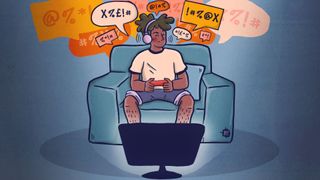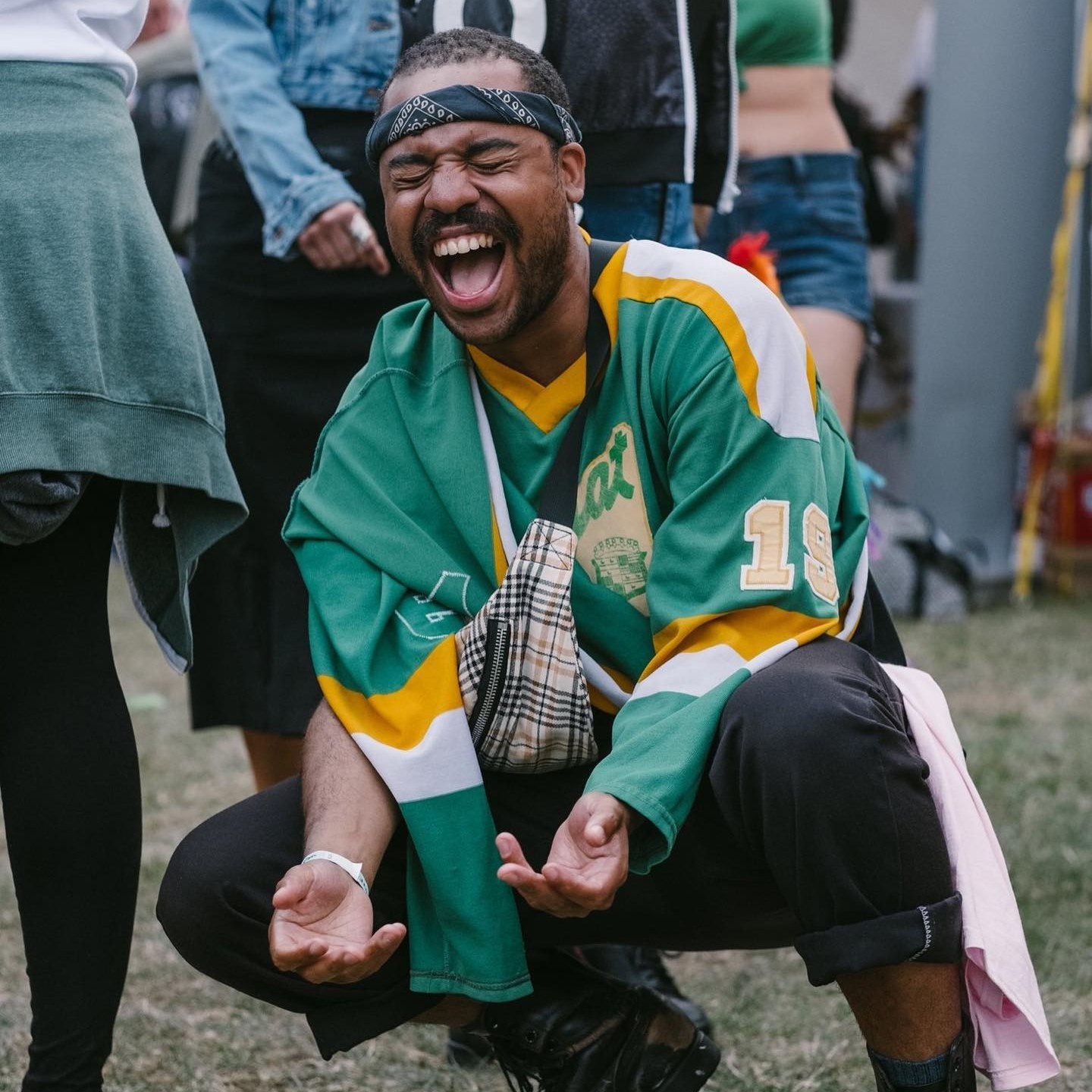There’s no logging off from race in video games
Opinion: ‘Remember when games were for escapism…’

Editor’s note: this article contains racist and homophobic language and themes in detailing the writer’s experiences which some readers may find offensive.
When was your first time? I remember it like it was yesterday. It was the first Gears of War, original 360, Team Deathmatch, four versus four, and at the time my Gamertag was vRic0v. Joining the match as a spectator first, I prepped myself to tag onto the three-man team that had lost.
Chatter erupted from my headset once the game was over: swears, insults, and laughs were traded. One player then yells out: “No Mexicans allowed, get the fuck out of my room, and mow my grass”. Then my screen went black before the words “You have been removed from the room” appearing.
Now I had been called “fag” and “nigger/a” before numerous times; both in a derogatory and endearing manner (amongst other black queer gamers). But what penetrated my youthful psyche in that moment of online racial-xenophobic targeting was 1) ‘Rico’ most likely refers to a Puerto Rican name, not a Mexican one and 2) I wasn’t Hispanic/Latin – my name is just Rico.
This was a discriminative drive-by; so quick was this person’s judgment and action that it caught me off guard, and I couldn’t even report the Gamertag because I didn’t know who had said it – this was in 2006.
But who gets to truly ‘escape’? And why shouldn’t we all be able to just log in and log off from the real world?
Outside of my own experience, from back then up until today, gamer’s discussions about their experiences in this harsh climate can be found all over the web, such as in this 2019 Reddit entitled Racism while playing video games.
Today, the online console gaming world is different. I can say with confidence that I experienced the once lawless and wild digital landscape known as online console gaming before any major attempts were made to combat discrimination. But has the wild-wild-west been fully tamed today? Not by a sniper-longshot.
Who really gets to escape?
In 2020, with regards to the ongoing global phenomena that is white people realizing that racism is still a real thing, from the killing of George Floyd by police in the US to the controversy about a supermarket Christmas ad in the UK, and countless other examples, many companies are making it their mission to condemn and call out racism and other forms of structural oppression, including leading names in the video game industry.
Get daily insight, inspiration and deals in your inbox
Get the hottest deals available in your inbox plus news, reviews, opinion, analysis and more from the TechRadar team.
All three major video game hardware companies (Microsoft, Sony, and Nintendo) spoke out earlier this year about racial injustices, mostly through social media blasts or by updating their website’s handy ‘About’ sections.
Sony even delayed its PS5 announcement, which elicited heated reactions on all sides of the debate, including tweets expressing opinions such as: “What do games have to do with race?” and “Remember when games were for escapism...”.
But who gets to truly ‘escape’? And why shouldn’t we all be able to just log in and log off from the real world? I didn’t know it then, but back on that day in 2006 I was beginning to realize that, in many people’s opinion, escapism is a privilege that’s allotted to those of the ruling racial, gender, and economical class, and that my ticket to pixelated paradise came with restrictions that no cheat codes could allow me to bypass.
Don’t get me wrong: I’m grateful for the limited refuge that the digital gaming world offered me in my younger years. This refuge took the form of online camaraderie and friendship, which is the same for many other games who, like me, feel marginalized. I even had my first queer experience with one of my Xbox Live friends.
The online gaming world for me, and others, once offered escapism and a place to form communal humanoid bonds that still have endured to this day. But for some of us things have changed for the worse, and for me online gaming presents anxieties and fears more than it does a safe space to play, which has prompted me to play more single-player titles.
Reporting systems and fighting back
Reporting systems can help curb some of these issues online, but they’re not perfect solutions. Even by today’s standards, the various reporting systems for online console gaming offer limited options when it comes to reporting racism and other forms of discrimination.
The ability to attach files, and the option to select categories dedicated to specific forms of discrimination, when filing a report are a great start, but in the realm of live-action online console gaming it’s still sometimes very difficult to distinguish the culprit.
This ‘in-game abuse’ and the ‘tricky’ nature of reporting it was highlighted in a 2019 Washington Post feature, where famous streamers like KittyPlays talk about instances of live sexist abuse and even threats of Swatting (where fake calls are placed with the police in an attempt to incite an armed response to a person’s home).
In terms of false reporting, take PSN for example: if a user’s account is suspended, that user cannot report another user during their suspension, and cannot appeal the decision after it has been made. Gamer Kenneth Curmi delves deeper into this issue, and the flawed nature of the PSN reporting system, in an article for Metro UK.

However, in the competitive gaming world, it seems that more is being done to tackle the issue. Big players like Blizzard have introduced forum systems, on top of rating systems, such as the Looking for Group feature and Endorsement level systems to help gamers find, team up, and rate people for “good” behavior, rather than relying on random matchmaking, in games like Overwatch.
The company reported in 2018 that systems such as this lowered the rates of abusive chats by between 15% and 30%, and claimed in 2019 that figures showed a 40% reduction in matches that had disruptive behavior.
While this is a possible solution to the problem, rating systems and integrated in-game forums are just Band Aids on a deep-rooted and insidious issue. Overall, in-game systems like these that combat discrimination are not satisfactory resolutions – they treat the symptoms and manifestations of systems of oppression in gaming, not the root causes.
So how can we begin to truly deal with the issue of discrimination in online gaming? I believe the answer lies at the core, which is the corporate structuring of the companies involved, and the lack of diversity in their leadership.
Moving forward with actions
The power lies with both the players, and with the gaming structures within which we operate. In order to potentially reform online gaming spaces, we must first reform the organizations that create and facilitate those spaces – and that means we need more minority involvement and input within the corporate structure.
In 2019, The International Game Developers Association (IGDA) found that 81% of game developers identify as white/Caucasian/European, while 7% identify as Hispanic/Latinx, and 2% identify as Black/African-American/African/Afro-Caribbean.
This imbalance in the development tiers of mainstream gaming could very easily facilitate a climate that excludes minority players, as well as sexual-orientation and gender minorities – and that is something that we can change.
If minorities have a bigger stake in the leadership and development... they can potentially influence how the software is developed for that hardware, therefore helping to create a more inclusive culture.
To start with, transparency is needed. It’s great that companies like Microsoft now publish data around the racial and gender diversity makeup of their organization which shows positive hiring metrics overall (for example, both Black and Hispanic/Latinx representation in the company have increased from 2016 to 2019).
If minorities have a bigger stake in the leadership and development of these hardware gaming companies, they can potentially influence how the software is developed for that hardware, therefore helping to create a more inclusive culture.
Microsoft's diverse corporate makeup may account for the spike of diversity within next-gen games like As Dusk Falls, Everwild, Far Cry 6, Outriders, and other titles. This increase in diverse representation could yield a bigger cultural understanding within the games themselves that discriminatory behavior is non-negotiable.
In theory, if hardware manufacturers, software developers, and players can all come to an understanding that certain discriminatory practices simply aren’t tolerable, the burden that reporting systems bear in terms of holding racist, homophoic, and otherwise prejudiced gamers accountable would be relieved.
To parallel this theory, in one academic study that focused on diversifying leadership as a pathway to structural reform, these actions are described as “a starting point”, paving the way for the adoption of new perspectives by making leadership more aware “of racism, discrimination and hidden pathways to formal progression”.
A combination of more greater diversity with both corporate leadership and the developer community, coupled with more robust reporting systems, could prove to be a potent solution. It’s not a foolproof strategy obviously, because structural reform of any industry shouldn’t be limited to, or be the responsibility solely of, those who run it.
Meaningful and lasting reform can only happen when it comes from both the very top, and from the grassroots level, meaning that we must empower everyone from the corporate boardroom to the individual player to play a role in transforming the culture of online gaming spaces.
An equal opportunity gaming world
We minorities, along with all gamers, must take ownership of how our communities, and the wider industry, is organized and run. Issues of discrimination in the home console online arena are just as pressing as other issues, like online cheating, modding, and fraud, and our feedback will drive change.
We are past the point of having to highlight trauma for the white majority and trying to justify why white kids calling me “nigger” on GTA Online isn’t an expected or acceptable narrative to swallow.
As long as minorities are gaming and occupying online gaming spaces, issues of race, gender, sex, and class identification will be inherent to gaming, and they’re not going away.
It’s a privilege to be able to log on and tune out the outside world when it doesn’t concern you, but the reality is that there’s no logging off or tuning out from being black and queer and it's not something I want or need to escape from.
Rico Norwood is a Film research student at the University of Southampton, who currently resides in London.
His primary academic concern is the role that Black Queer Art and its disruption of historical narratives through films. He has written extensive work in the area of race, media, queer studies, and political criticism.
Most Popular


